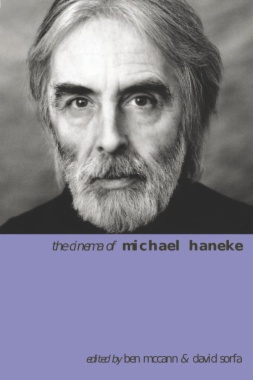Michael Haneke is one of the most important directors working in Europe today, with films such as Funny Games (1997), Code Unknown (2000), and Hidden (2005) interrogating modern ethical dilemmas with forensic clarity and merciless insight. Haneke's films frequently implicate both the protagonists and the audience in the making of their misfortunes, yet even in the barren nihilism of The Seventh Continent (1989) and Time of the Wolf (2003) a dark strain of optimism emerges, releasing each from its terrible and inescapable guilt. It is this contingent and unlikely possibility that we find in Haneke's cinema: a utopian Europe. This collection celebrates, explicates, and sometimes challenges the worldview of Haneke's films. It examines the director's central themes and preoccupations—bourgeois alienation, modes and critiques of spectatorship, the role of the media—and analyzes otherwise marginalized aspects of his work, such as the function of performance and stardom, early Austrian television productions, the romanticism of The Piano Teacher (2001), and the 2007 shot-for-shot remake of Funny Games.
- Contents
- Acknowledgments
- Contributors
- Introduction by Ben McCann and David Sorfa
- 1. Domestic Invasion: Michael Haneke and Home Audiences
- 2. Acting, Performance and the Bressonian Impulse in Haneke's Films
- 3. Ethical Violence: Suicide as Authentic Act in the Films of Michael Haneke
- 4. Thinking the Event: The Virtual in Michael Haneke's Films
- 5. Michael Haneke and the Politics of Film Form
- SPACE
- 6. Glocal Gloom: Existential Space in Haneke's French-Language Films
- 7. The Vacant Vacationer: Travel as Symptom and Antidote in Michael Haneke
- 8. Cosmopolitan Exteriors and Cosmopolitan Interiors: The City and Hospitality in Haneke's Code Unknown
- UNSEEN HANEKE
- 9. The Early Haneke: Austrian Literature on Austrian Television
- 10. Tracing K: Michael Haneke's Film Adaptation of Kafka's Das Schloff
- GLACIATION
- 11. Attentuating Austria: The Construction of Bourgeois Space in The Seventh Continent
- 12. Supermodernity, Sick Eros and the Video Narcissus: Benny's Video in the Course of Theory and Time
- FUNNY GAMES
- 13. The Ethical Screen: Funny Games and the Spectacle of Pain
- 14. Superegos and Eggs: Repetition in Funny Games (1997, 2007)
- 15. From Culture to Torture, Music and Violence in Funny Games and The Piano Teacher
- THE PIANO TEACHER
- 16. Images of Confinement and Transcendence: Michael Heneke's Reception of Romanticism in The Piano Teacher
- 17. Two Meanings of Masochism in the Language of the Art Critic
- HIDDEN
- 18. Subject to Memory? Thinking after Hidden
- 19. Digital Cinema and teh "Schizophrenic" Image: The Case of Michael Haneke's Hidden
- 20. Hidden Shame Exposed: Hidden and the Spectator
- THE WHITE RIBBON
- 21. The White Ribbon in Michael Haneke's Cinema
- Filmography
- Bibliography
- Index

